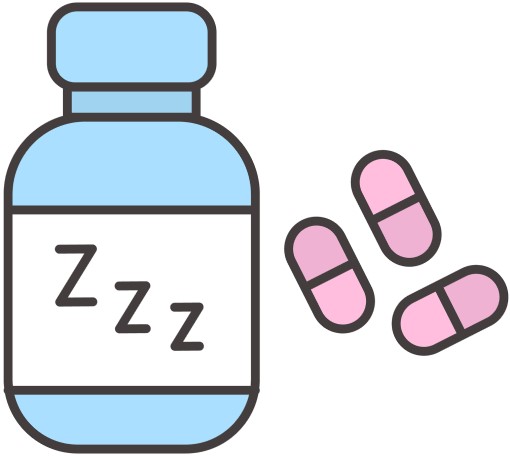
Can sleeping pills help with sleepwalking? – What we know and what else to try
By Jason Wooden, PhD | November 30, 2021
It’s no surprise people are curious whether sleeping pills can help sleepwalking since being over-tired is a known trigger. However, they’re generally not used as a treatment and may in rare cases act as a trigger.
Alternative remedies include better sleep hygiene, stress management, lifestyle changes, anticipatory awakening, sleepwalking prevention devices, counseling, and seeing a doctor to check for health-related risk factors.
In this article, we’ll talk about:
1) Why people are thinking sleeping pills
2) Can sleeping pills really help sleepwalking?
3) Other meds besides sleeping pills used for sleepwalking
4) 8 alternatives worth a try
Why people are curious if sleeping pills can help with sleepwalking
If you’re wondering whether sleeping pills can help with sleepwalking, it’s no surprise. After all, being sleep-deprived and overtired is one of the known triggers.
Along those lines, anything you can do to help your sleep is worth a try, right?
Sleep walking can be pretty unsettling.
Maybe you’ve been awakened at night to find a spouse doing something odd in the kitchen…
Or perhaps, you’ve been struggling with a child who gets up at night and shuffles into the hallway.
Whether it’s an adult or a child, sleepwalking is a serious issue because they can unknowingly harm themselves and others.
So, if you’re thinking about giving sleeping pills a try, it’s understandable.
And you’re likely not the only one looking for answers – 20% of kids in the 8 to 12 year old range sleepwalk and roughly 4% of adults have done it at some point.
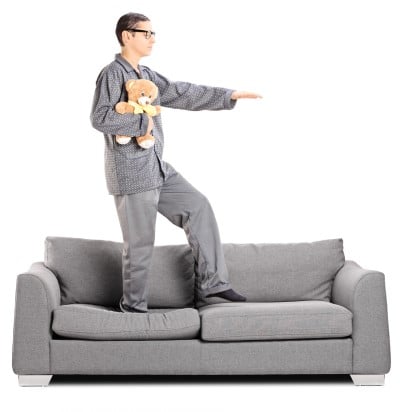
Sleepwalking is when someone walks or do other activities while not fully awake.
The reasons it happens is not fully understood but some of the known risk factors and triggers are:
Genetics – it tends to run in families
Poor sleep – as mentioned earlier, you’re more likely to sleepwalk when you’re overtired
Stress and anxiety – can be from life changes or other things going on
Other health issues – fevers, asthma, acid reflux, underlying sleep disorders, and other health problems
Mental health challenges – people with dealing with issues such as depression, neurological disorders, obsessive-compulsive disorder, panic attacks, or posttraumatic stress disorder have an increased risk
Alcohol – heavy drinking can increase your risk
Medications – Some meds may trigger sleepwalking in patients including antidepressants, antipsychotics, and beta-blockers
Regardless of why it’s happening to you or someone you know, it’s pretty unnerving.
Sleepwalking from your bed to sleep on a couch downstairs is one thing, but what about someone who leaves the house?
And what about the stories of people sleepwalking to a kitchen and handling dangerous objects like knives?
That can wreck the sleep of others since their on edge and worried about what’s going to happen next.
Can sleep meds make a difference for sleepwalkers?
Are there any downsides you should be worried about?
Let’s take a look at what we know, some practical things to keep in mind, and what else you can try if you decide sleeping pills may help for your sleepwalking situation.
Can sleeping pills really help sleepwalking?
Since overtiredness can contribute to sleepwalking, getting adequate sleep is one of the things commonly recommended.
Sleeping pills are a popular and convenient remedy to help people struggling with insomnia. However, they generally aren’t used to treat sleepwalking.
You should also be aware that some sleep medications may in rare cases trigger sleepwalking. Unusual sleep behaviors have been reported for people taking common brand name prescription meds such as Ambien, Halcion, and Lunesta.
In one study involving 1972 patients taking Ambien, researchers found that only seven experienced sleepwalking. In another study, 1 out of 96 participants sleepwalked.
That’s 1% or less in both cases.
While that’s pretty low, the FDA in 2019 started requiring that a warning be added to labels to remind people of these risks. They recommend that patients stop taking their sleep meds and contact their doctor right away if they experience unusual sleep behaviors.
There are other downsides for sleeping pills too – drug dependence, withdrawal symptoms, memory and attention problems, and rebound insomnia. Because of this, sleeping pills are generally recommended as a short-term remedy for insomnia.
So, while sleeping pills might help an exhausted sleepwalker get some shuteye, it worth keeping all these risks in mind and checking with your doctor before you use them.
If you’re wondering what other meds you could take, read on.
Other meds besides sleeping pills that may help with sleepwalking
So, now that we’ve looked at the downsides of using sleeping pills for sleepwalking, let’s look at some alternative medications.
Among the prescription drugs commonly used are:
Klonopin (Clonazepam) – calms the brain and nerves to decrease the amount of electrical activity in the brain
Prosom (estazolam) – a sedative that can help sleepwalkers fall asleep more easily and stay asleep longer
Trazodone (Oleptro) – an anti-depressant used for years to treat anxiety and depression, it increases the levels of the neurotransmitter serotonin in the brain
They are generally prescribed by a physician for more serious situations in which there are significant safety risks or family disruption.
You should be aware that some anti-depressants have been found to trigger sleepwalking in some individuals.
8 things besides sleeping pills that can help with sleepwalking
If you’re curious what else you can do besides sleeping pills to help with sleepwalking, there are plenty of alternatives worth a try.
Depending on your situation, some are simple changes you can make right away while others may require an investment of time or money.
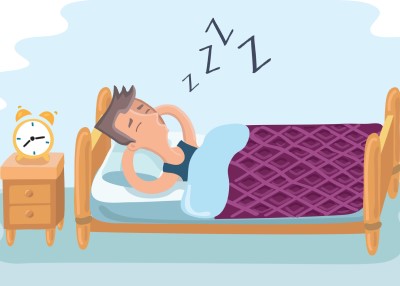
1) Get regular sleep
Since being overtired is a known trigger, it’s important for a sleepwalker to get the best sleep they can every night. Start with sleep hygiene, the everyday things that set the stage for quality sleep.
For better sleep hygiene, you should:
- keep consistent wake up & sleep times
- avoid naps
- exercise during the day
- avoid large meals, alcohol, or stimulants such as caffeine before bedtime
- maintain a regular bedtime routine
- avoid using TVs, laptops, or other electronics before sleep
- keep your bedroom dark, cool, quiet, & relaxing
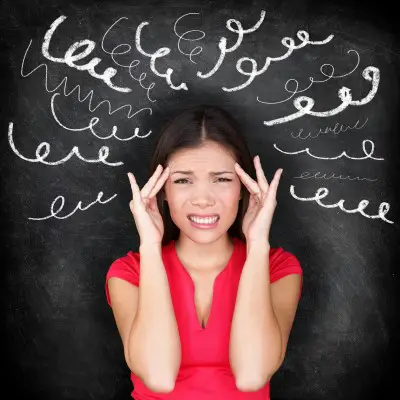
2) Stress management
Stress is another risk factor for sleepwalking. It’s also one of the most common challenges for sleep.
There’s lots you can do to help manage stress – lifestyle changes, aerobic exercise, and relaxation exercises. Getting regular sleep will also help.
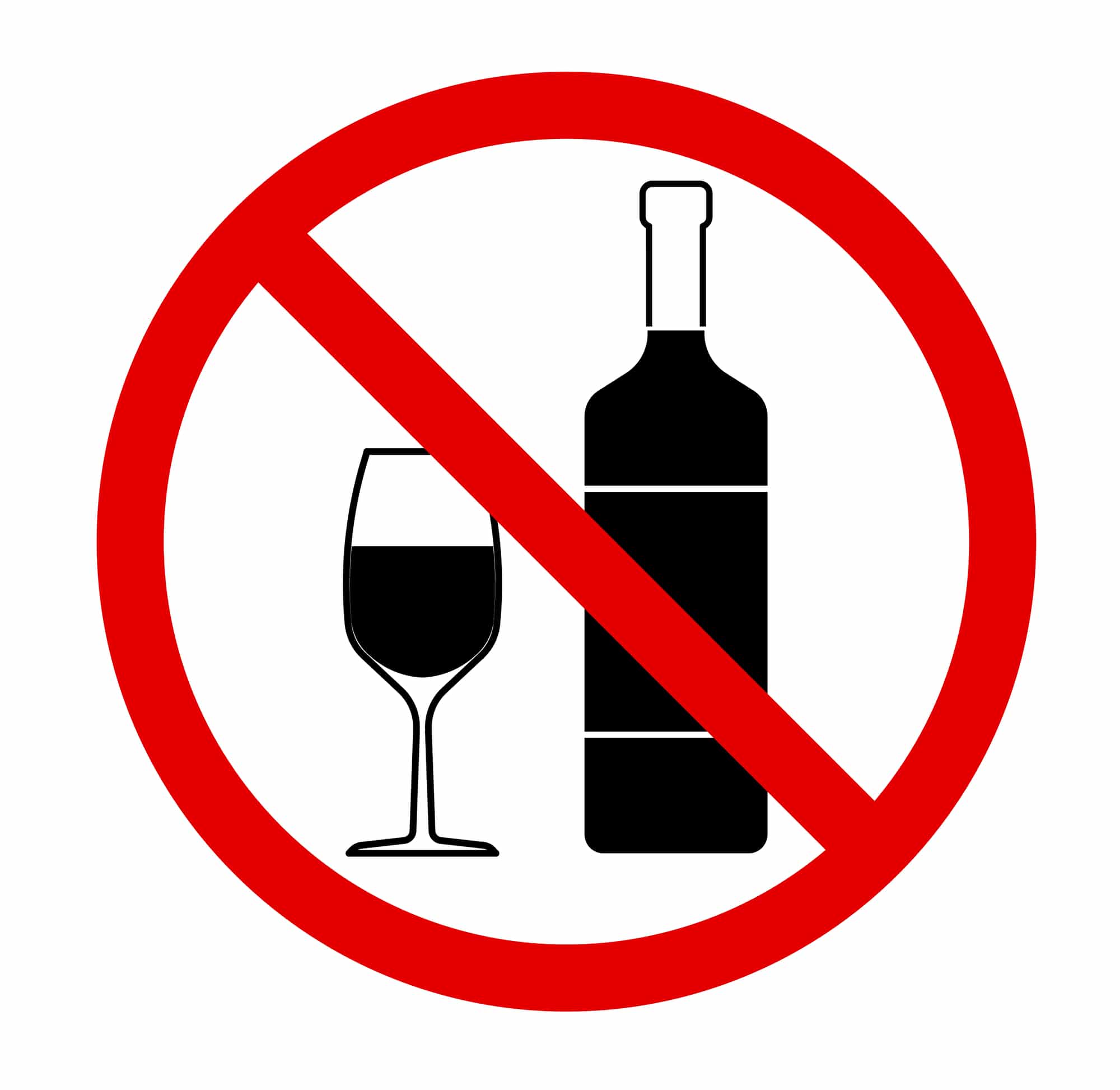
3) Avoid alcohol
Since alcohol may trigger sleepwalking, it should be consumed earlier in the day to avoid drinking before bed.
Another reason to avoid alcohol at night is that it can also affect the quality of sleep.
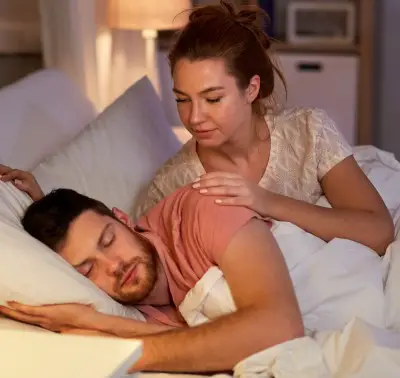
4) Anticipatory awakening
This involves waking up someone about 15 minutes before they usually sleepwalk. The person then stays awake for a few minutes before falling asleep again.
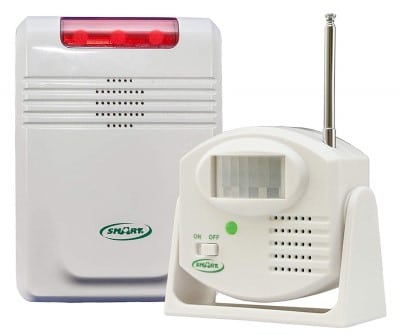
5) Sleepwalking prevention devices
Your choices include gates, safety door locks, bedroom door alarms, motion sensors, and floor mat alarms.
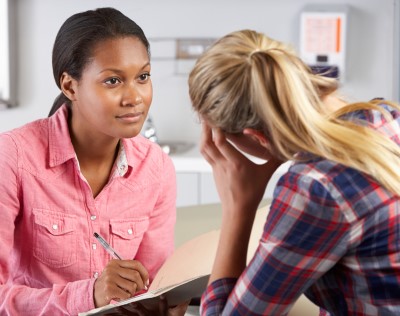
6) Counseling
A mental health professional such as a psychotherapist can help figure out ways to lower stress and anxiety.
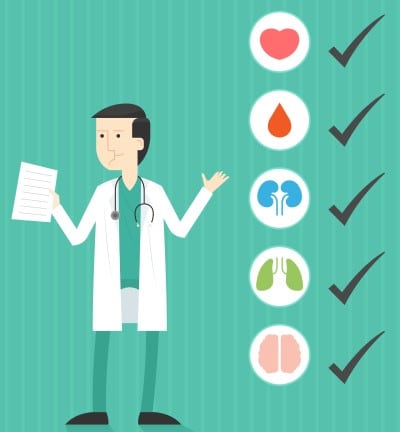
7) Get a check up
I’ve already mentioned the wide variety of health issues and medications that have been linked to sleep walking. A doctor can check for these underlying risk factors and help you figure out what you can do about them.

8) See a sleep specialist
Did you know that an underlying sleep disorder can make it hard to sleep and increase the risk for sleepwalking? A sleep doctor can check for things like sleep apnea linked to sleepwalking.
They will also check for other health issues linked to poor sleep and sleepwalking.
You may also be interested in:
Useful sleepwalking aids and prevention devices
Sleepwalking prevention devices: 5 to try for easier nights
Can stress cause you to sleepwalk?
Is sleepwalking a sign of something more serious
Is sleepwalking a sign of mental illness?
Can CBD help with sleepwalking?
Can IBS cause you to sleepwalk?
Sources:
1. “Preventing Sleepwalking: Scientific Findings to Help Stop a Chronic Sleepwalker”, 2018, Amerisleep website
2. Polysomnographic diagnosis of sleepwalking: effects of sleep deprivation. Ann Neurol. 2008 Apr;63(4):513-9.
3. “Sleepwalking”, MedlinePlus
4. “Sleepwalking”, 2020, American Academy of Sleep Medicine
5. Zolpidem-Induced Sleepwalking, Sleep Related Eating Disorder, and Sleep-Driving: Fluorine-18-Flourodeoxyglucose Positron Emission Tomography Analysis, and a Literature Review of Other Unexpected Clinical Effects of Zolpidem. J Clin Sleep Med. 2009 Oct 15; 5(5): 471–476.
6. “FDA adds Boxed Warning for risk of serious injuries caused by sleepwalking with certain prescription insomnia medicines”, 2019, FDA website
7. “Sleepwalk (Somnambulism)”. 2021, eMedicineHealth
8. Medication induced sleepwalking: A systematic review. Sleep Med Rev. 2018 Feb;37:105-113.
Connect with us:
About Us
Better Sleep Simplified® was founded as a place for you to get clear and well-researched information.
Our goal is to make sure you know about your options so that you take action sooner rather than later.
Check us out on YouTube:
Watch and Learn
Helpful sleep tips, interesting sleep facts and statistics you want to know about
Affiliate Disclosure
This site is a participant in the Amazon Services LLC Associates Program and other affiliate advertising programs designed to provide a means for sites to earn advertising fees by advertising and linking to them.
Important: BetterSleepSimplified.com is for informational purposes only and is not intended or implied to be a substitute for professional medical advice, diagnosis, or treatment. Always consult a physician for sleep and health concerns. See additional information.
